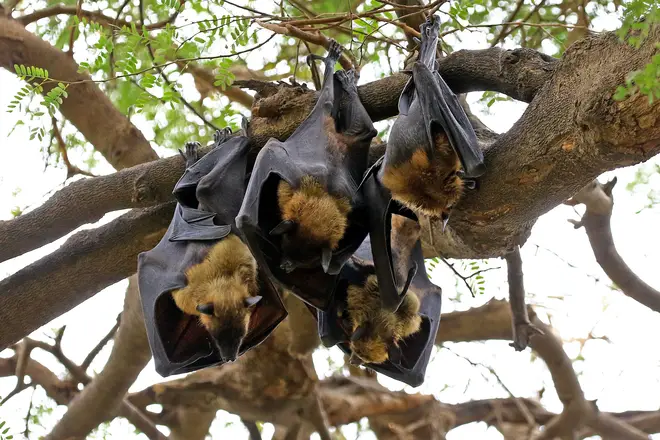
Ian Payne 4am - 7am
29 March 2021, 07:30 | Updated: 29 March 2021, 10:57

Covid-19 was "most likely" passed to humans via another animal that caught the virus from bats, a leaked draft copy of a joint World Health Organisation (WHO) study has found.
Claims that coronavirus was spread following a laboratory leak are "extremely unlikely", according to the report that was obtained by the Associated Press.
The news agency said it received "what appeared to be a near-final version (of the study) on Monday from a Geneva-based diplomat from a WHO-member country".
However, the AP added that it was unclear whether the report might still be altered prior to its official publication.
The WHO diplomat did not want to be identified as they did not have the authority to release the information before it is published.
Read more: Covid didn't start in Wuhan wet market and 'lab leak' theory dismissed by WHO
Watch: WHO's Wuhan probe 'complete farce' fumes defence select committee chair

WHO scientists arrive in Wuhan to start pandemic investigation
Although the findings produced no great surprises, many questions remain unanswered. Therefore, the team proposed further research in every area except for the lab leak hypothesis.
The release date of the study has been repeatedly delayed, raising questions about whether China was trying to skew the conclusions to prevent it from being blamed for the pandemic.
Researchers listed four scenarios in order of likelihood, concluding that transmission through a second animal was likely to very likely.
They also evaluated direct spread from bats to humans as likely and said that spread through "cold-chain" food products was possible but not likely.
Read more: WHO team visits Wuhan market where first Covid infections detected
Read more: WHO team released from quarantine to probe Covid origins in Wuhan

Tom Tugendhat: WHO's Wuhan investigation 'complete farce'
The closest relative of the virus that causes Covid-19 has been found in bats, which are known to carry coronaviruses. However, the report says that "the evolutionary distance between these bat viruses and SARS-CoV-2 is estimated to be several decades, suggesting a missing link".
It said that highly similar viruses have been found in pangolins, but also noted that mink and cats are susceptible to the virus, which suggests they could be carriers.
The report is based largely on a visit by a WHO team of international experts to Wuhan, the Chinese city where Covid-19 was first detected, from mid-January to mid-February.
Peter Ben Embarek, the WHO expert who led the Wuhan mission, said on Friday that the report had been finalised and was being fact-checked and translated.
"I expect that in the next few days, that whole process will be completed and we will be able to release it publicly," he said.